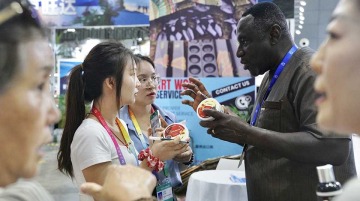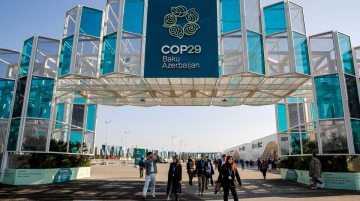Thinking about Africa in the context of the climate crisis makes for some cognitive dissonance. On the one hand, the continent’s massive potential for renewable energy, its stocks of critical minerals, and its storehouses of oil, gas, and coal make it a huge “ka-ching” in continental form.
On the other hand, Africa’s large youth population, its weak economies and its outsized exposure to climate stress means that many European policymakers see it as a time-bomb threatening wave after wave of instability and migration.











